Originally published in the Catholic Times, Feb. 10 issue
Ohio Dominican University celebrated the feast of Saint Thomas Aquinas with their annual Convocation in this year featuring a lecture by theologian Fr. Thomas F. OMeara, OP titled Vast Universe: Extraterrestrials and Christian Revelation (Also the title of his latest book). OMearas presentation treated those attending with the opportunity to stretch their minds and understanding of Christian revelation here on earth by considering the possibility of free, intelligent extraterrestrial life sharing with human beings a capacity for relationship with God, the Creator of all. [Read more…]

 “Blue Moon Over Cincinnati” Bill Ingalls/NASA via Getty Images (Originally published in the Catholic Times, September 9, 2012 © 2012 Mary van Balen)
“Blue Moon Over Cincinnati” Bill Ingalls/NASA via Getty Images (Originally published in the Catholic Times, September 9, 2012 © 2012 Mary van Balen)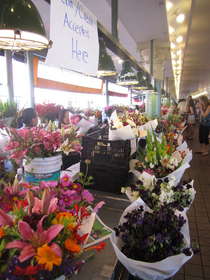
 from the film: “The Intouchables” (Originally published in the Catholic Times, August 26, 2012 © 2012 Mary van Balen)
from the film: “The Intouchables” (Originally published in the Catholic Times, August 26, 2012 © 2012 Mary van Balen) Then there was the Public Marketplace, as noisy and crowded as the garden was quiet and nearly empty. Booth after booth of fresh flowers were a riot of color and reminded me a bit of Thailand markets. Jewelry, clothing, artwork, fruits, vegetables, and yes, the fish market where crabs and whole salmon are tossed about. So NOT Ohio.
Then there was the Public Marketplace, as noisy and crowded as the garden was quiet and nearly empty. Booth after booth of fresh flowers were a riot of color and reminded me a bit of Thailand markets. Jewelry, clothing, artwork, fruits, vegetables, and yes, the fish market where crabs and whole salmon are tossed about. So NOT Ohio. This print hangs at the Sacred Heart Chapel at Saint Benedict’s Monastery, St. Joseph, MN (Originally published in the Catholic Times, July 12, 2012 © 2012 Mary van Balen)
This print hangs at the Sacred Heart Chapel at Saint Benedict’s Monastery, St. Joseph, MN (Originally published in the Catholic Times, July 12, 2012 © 2012 Mary van Balen) Rublev’s “Trinity” © 2012 Mary van Balen
Rublev’s “Trinity” © 2012 Mary van Balen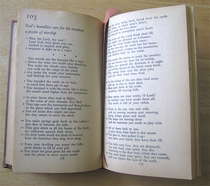
 PHOTO: Mary van Balen from Volume 4
PHOTO: Mary van Balen from Volume 4 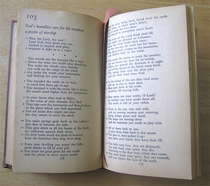 As I prayed the Psalter I thought of St. Athanasius (2295-373CE) whose feast was May 2. He is known for his fight against the heresy of Arianism that claimed Jesus was in no way equal to God the Father, having been created, but what I most remember about Athanasius is his wonderful letter to Marcellinus that spoke eloquently of the interpretation of the Psalms. While other books of the Bible are filled with words that inspire or instruct, yet remain the words of the author, words of the psalms are like one’s own words that one read; and anyone who hears them is moved at heart, as though they voiced for him his deepest thoughts.
As I prayed the Psalter I thought of St. Athanasius (2295-373CE) whose feast was May 2. He is known for his fight against the heresy of Arianism that claimed Jesus was in no way equal to God the Father, having been created, but what I most remember about Athanasius is his wonderful letter to Marcellinus that spoke eloquently of the interpretation of the Psalms. While other books of the Bible are filled with words that inspire or instruct, yet remain the words of the author, words of the psalms are like one’s own words that one read; and anyone who hears them is moved at heart, as though they voiced for him his deepest thoughts.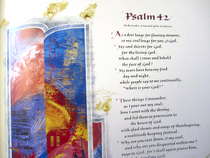 When I hold the old Psalter in my hands and pray the words printed there, I am connected not only with my monk friends, but also with my ancestors. I am in touch with my heart, and my journey and the God who embraces us all.
When I hold the old Psalter in my hands and pray the words printed there, I am connected not only with my monk friends, but also with my ancestors. I am in touch with my heart, and my journey and the God who embraces us all. PHOTO: Mary van Balen
PHOTO: Mary van Balen 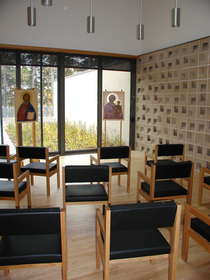
 PHOTO: Mary van Balen (Originally published in the Catholic Times, March 11, 2012 © 2012 Mary van Balen)
PHOTO: Mary van Balen (Originally published in the Catholic Times, March 11, 2012 © 2012 Mary van Balen)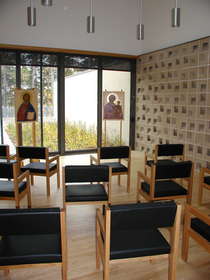 Lent is a time that reminds us to consider our goal. Whatever discipline or practices we are using to observe this season are meant to help us focus on what is most important in our lives: our relationship with the Holy One. That is not something apart from the rest of our lives, but rather integral to everything we do. How we interact with people at our workplace, what we do to recreate body and spirit, how we respond to needs of others, how we live with our families and friends.
Lent is a time that reminds us to consider our goal. Whatever discipline or practices we are using to observe this season are meant to help us focus on what is most important in our lives: our relationship with the Holy One. That is not something apart from the rest of our lives, but rather integral to everything we do. How we interact with people at our workplace, what we do to recreate body and spirit, how we respond to needs of others, how we live with our families and friends.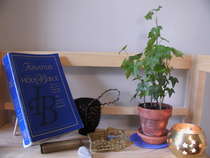 The Wisdom we seek dwells within, a gift of the Incarnation. These weeks are good times to reflect on using Scripture and other writing that feeds our spirits. It is a time to reflect on how our relationship with God influences our interaction with the world.
The Wisdom we seek dwells within, a gift of the Incarnation. These weeks are good times to reflect on using Scripture and other writing that feeds our spirits. It is a time to reflect on how our relationship with God influences our interaction with the world. 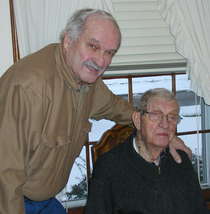
 PHOTO: Mary van Balen (First appeared in The Catholic Times, February 19, 2012 ©2012 Mary van Balen)
PHOTO: Mary van Balen (First appeared in The Catholic Times, February 19, 2012 ©2012 Mary van Balen)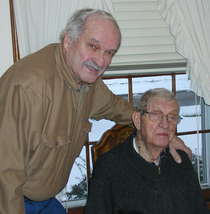 My brothers, sisters, and most of our cousins came to the funeral home to remember Adrian and share our stories. Afterward, we gathered at a local park shelter house to share food, laughter, and more stories. Death provided an opportunity for us to reconnect and to celebrate not only Adrians life, but also the lives of family and friends that were intertwined with his.
My brothers, sisters, and most of our cousins came to the funeral home to remember Adrian and share our stories. Afterward, we gathered at a local park shelter house to share food, laughter, and more stories. Death provided an opportunity for us to reconnect and to celebrate not only Adrians life, but also the lives of family and friends that were intertwined with his.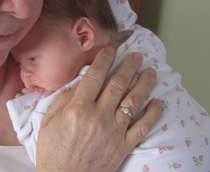 Liturgically, we are approaching Lent, when we celebrate the Paschal Mystery of Christs birth, death, and resurrection. This is the ultimate understanding of death leading to new life. Jesus was born lived his life, and in the end, was murdered by humanity that could not accept the challenge of love and compassion he proclaimed.
Liturgically, we are approaching Lent, when we celebrate the Paschal Mystery of Christs birth, death, and resurrection. This is the ultimate understanding of death leading to new life. Jesus was born lived his life, and in the end, was murdered by humanity that could not accept the challenge of love and compassion he proclaimed.